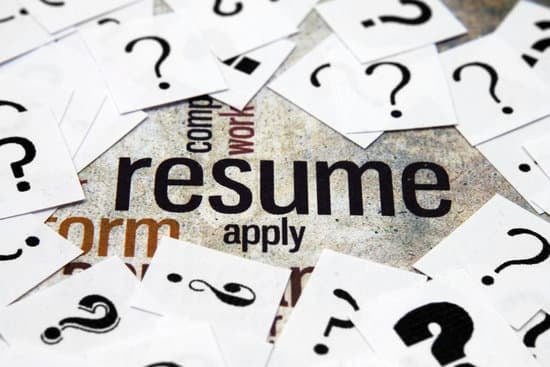
Journal To Help Achieve Your Goals
Dear Daughters , We all know that goals are essential to staying motivated, but sometimes they can be tough to achieve. Whether you’re trying to
Your curriculum vitae, or CV, is a virtual representation of you and your professional experience. It is almost like a first impression before you even meet someone in person. While it is imperative that you include the information that is most pertinent and significant in your curriculum vitae, there are also some components of the document that you might want to consider omitting. At Dear Daughters Loves mom, I have over 15 years of experience in the game… as you can imagine, we have seen our fair share of CV’s.

The results of a poll conducted by TopResume among hiring managers indicated that “spelling and/or grammatical problems” are the most common mistake on a resume that could cost the candidate the job. You may, however, simply avoid this resume deal-breaker with a little effort on your part. You should print out your resume using a different font, read it out loud, and then have someone whose writing abilities are flawless proofread and revise your resume for grammatical errors.
The bulk of resume objectives consists of nothing but empty space. “Oh, I see, so you’re looking for a demanding position with an expanding company that will provide you the opportunity to make a positive contribution, are you? “What a revolutionary idea.
Instead
Create a summary or “Who I Am” section that highlights your value proposition and speaks directly to the things you know the target audience will care about. This is your opportunity to make abundantly evident that you are a good candidate for the position.
Constructing your CV in the third person, such as saying “Sarah raised more than $70,000 for the organization,” is one of the quickest ways to come out as arrogant and foolish.
Instead
When you compose a Curriculum vitae, your name and various contact details go at the top of the page. Simply because this is the case, the recipient will understandably conclude that the document he or she is in possession of was sent by you. Therefore, you should write the resume in the first person and leave out any pronouns.

You should omit from your Curriculum vitae any social media accounts that contain content that is not professional, that does not support your current career goals, and that is not updated regularly. If you include the URL to a social media account on your resume, you should ensure it reflects your personal brand and helps explain why you are qualified for the position. In addition, you should establish at least one professional online profile on websites such as LinkedIn or GitHub (depending on the industry in which you operate), and you should place a link to this profile at the top of your resume. If you work in the creative industry, you should consider starting an online portfolio or blog with a responsive design to mobile devices. This will allow potential employers to see your site from any device.
There is no valid reason for you to include a picture of yourself on your resume, unless you are a well-known face in television or if your line of work requires a professional headshot. Your photograph will almost certainly reveal information about your nationality, gender, or age, among other aspects of your identity, which may unwittingly lead to discrimination. Before the company has decided whether to hire you purely on your qualifications, there is no reason to give them those facts in your application.
Your new employer can find out if you are not factually accurate or if you embellished the truth, and if they do, this could be grounds for quick dismissal from your position. Untruths can manifest themselves in various ways, including but not limited to:
When you are under new management, the new management will do some investigation, and all these variables can work against you.
The average hiring manager can read anywhere from 5 to 50 CVs in a single day, depending on the actual role. Although you should be impressing them with your skills, you shouldn’t offset that by confounding them with your vocabulary. If you notice that you are using the word “success” excessively by utilizing words that neither you nor they would comprehend, I recommend you switch up the synonyms every couple of paragraphs. It will discourage the person responsible for hiring, and you risk missing out on the opportunity. Maintain the simplicity, clarity, and precision of your CV.
LinkedIn possesses many useful features that enable users to display some of their most significant accomplishments. These features include a “featured” section, a sizable part for a personal profile, and a list for credentials such as accreditations and licenses. However, revealing any personal information about oneself, such as your age, home location, or a picture of yourself, could potentially lead to bias and discrimination.
The person responsible for hiring will form an opinion about you as they review your CV to determine whether you are qualified for the position. This includes any abilities you’ve picked up throughout your professional life. Therefore, if there is a certain function that is not necessary, remove it and make some additional room for your most recent experience and significant accomplishments. Keeping your curriculum vitae to two pages is also considered the “correct” length. Much longer than that, and the hiring manager may perceive it as “waffling” or content that is not necessary.
It was once a good idea to include information on your hobbies and interests on your CV. However, in today’s world, leaving that information off your CV may be in your best favor. It’s good to have this information, but it doesn’t provide much in terms of specifics or connection to your most important accomplishments and competencies. Other components of your curriculum vitae that you might want to consider eliminating are:
These are the characteristics that will be discussed with the manager responsible for hiring at the appropriate time. At this point in time, you want your previous experience and accomplishments to stand out and bring your resume to life.
Take a second look at your resume now that you know the information that should not be included in it. You want to ensure that it contains all the appropriate components, so that it can successfully tell your story and advertise your qualifications and work experience. It can be difficult to revise a résumé. People tend to be quite connected to their work accomplishments and personal interests. That being said, your CV should have everything working in your favor. Cut the fat, be objective, and please don’t mention your extensive Vynl Record collection. To find out more, please click on the link provided below.
To learn more about Resumes please check out these articles

Dear Daughters , We all know that goals are essential to staying motivated, but sometimes they can be tough to achieve. Whether you’re trying to

Dear Daughters, Retirement planning is an important part of financial management. It can help you save for your own retirement and provide a comfortable retirement
Dear Daughters, Journaling to Help with Stress is a great idea. It can help you process your thoughts and feelings, and it can provide
Subscribe to my weekly newsletter!